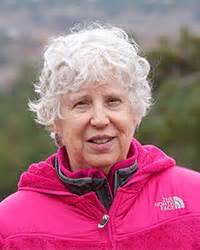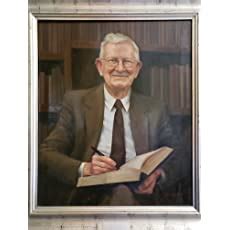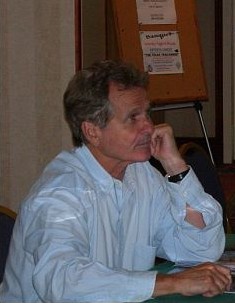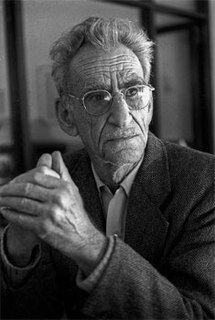A Quote by Diane Ackerman
There is a way of beholding nature which is a form of prayer, a way of minding something with such clarity and aliveness that the rest of the world recedes. It . . . gives the brain a small vacation.
Related Quotes
Prayer is not a way to get what we want to happen, like the remote control that comes with the television set. I think that prayer may be less about asking for the things we are attached to than it is about relinquishing our attachments in some way. It can take us beyond fear, which is an attachment, and beyond hope, which is another form of attachment. It can help us remember the nature of the world and the nature of life, not on an intellectual level but in a deep and experiential way. When we pray, we don't change the world, we change ourselves. We change our consciousness.
The rest of America, with some small exceptions, has been bulldozed and rebuilt and then bulldozed and rebuilt again. Our places have become interchangeable. Here in New Orleans, everything from the architecture to the way in which people eat, the way in which they talk, the way in which they do business, the way in which they dance, the manner in which everything is set to a parade beat, they're all from here. There's no place like it.
It is not merely the brevity by which the haiku isolates a particular group of phenomena from all the rest; nor its suggestiveness, through which it reveals a whole world of experience. It is not only in its remarkable use of the season word, by which it gives us a feeling of a quarter of the year; nor its faint all-pervading humour. Its peculiar quality is its self-effacing, self-annihilative nature, by which it enables us, more than any other form of literature, to grasp the thing-in-itself.
There's something about the idea of writing, and thinking about writing as a form of prayer - the way as a writer you call out into the world and throw your words into the world. You're not praying to a god, but you're almost conjuring a reader to arrive. That's what books do: they're an invitation to readers.
Maybe I was praying for him then, in my own way. Does God have a set way of prayer, a way that He expects each of us to follow? I doubt it. I believe some people-- lots of people-- pray through the witness of their lives, through the work they do, the friendships they have, the love they offer people and receive from people. Since when are words the only acceptable form of prayer?
But it is important to realize we are all trapped in mental constructs, and so we separate ourselves from reality; the whole world loses its aliveness-or, rather, we lose our ability to sense that aliveness, the sacredness of nature. When we approach nature through the conceptualizing mind, we see a forest as a commodity, a concept. We no longer see it for what it truly is, but for what we want to use it as. It is reduced. This is how it becomes possible for humans to destroy the planet without realizing what they are doing.
Prayer that craves a particular commodity—anything less than all good, is vicious. Prayer is the contemplation of the facts of life from the highest point of view. It is the soliloquy of a beholding and jubilant soul. It is the spirit of God pronouncing his works good. But prayer as a means to effect a private end is theft and meanness. It supposes dualism and not unity in nature and consciousness. As soon as the man is at one with God, he will not beg.
When I am liberated by silence, when I am no longer involved in the measurement of life, but in the living of it, I can discover a form of prayer in which there is effectively no distraction. My whole life becomes a prayer. My whole silence is full of prayer. The world of silence in which I am immersed contributes to my prayer.
BRAIN, n. An apparatus with which we think that we think. That which distinguishes the man who is content to be something from the man who wishes to do something. A man of great wealth, or one who has been pitchforked into high station, has commonly such a headful of brain that his neighbors cannot keep their hats on. In our civilization, and under our republican form of government, brain is so highly honored that it is rewarded by exemption from the cares of office.
Nature consists of facts and of regularities, and is in itself neither moral nor immoral. It is we who impose our standards upon nature, and who in this way introduce morals into the natural world, in spite the fact that we are part of this world. We are products of nature, but nature has made us together with our power of altering the world, of foreseeing and of planning for the future, and of making far-reaching decisions for which we are morally responsible. Yet, responsibility, decisions, enter the world of nature only with us







































